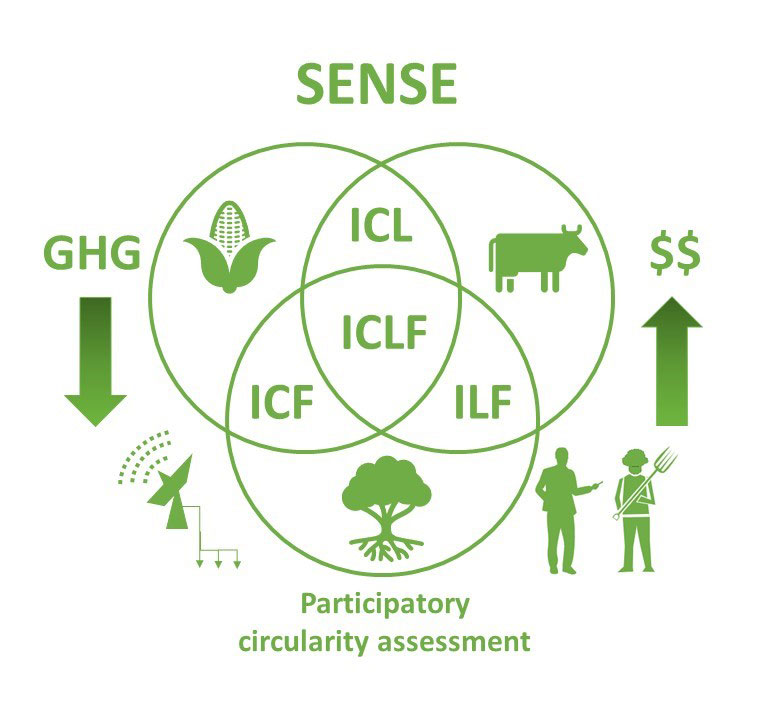SENSE
Synergies in integrated systems: Improving resource use efficiency while mitigating GHG emissions through well-informed decisions about circularity
Summary

Specialization, intensification and spatial separation of crop, livestock and forestry production systems have contributed to climate change and biodiversity loss. Circularity in integrated crop-livestock-forestry production systems may reduce the environmental impact of agricultural production systems with strategies to mitigate greenhouse gases (GHG) emissions and increase resource use efficiency. However, a clear picture of potential synergies and trade-offs is required before prioritizing solutions. The SENSE project will develop a matrix of (existing) indicators, as well as the status of circularity quantification within various case studies involved in integrated crop-livestock-forestry systems in four European countries (Italy, Germany, the Netherlands, and the United Kingdom) and three South American countries (Argentina, Brazil and Uruguay). Contrasting scenarios of carbon, nutrients, water, and biomass flows will be simulated in the case studies through process-based models such as manure-DNDC. We will test a novel digital Monitoring, Reporting and Verification (MVR) system developed by the James Hutton Institute (project leader) and its application in quantifying and mitigating GHG emissions. This analysis will lead to potential scenarios at farm level to redesign systems towards more complete local circularity within integrated crop-livestock-forestry systems.
We will evaluate and compare the circularity scenarios according to: (1) their potential for mitigating GHG emissions, (2) their resilience, using a probabilistic risk analysis approach, and (3) their side effects on other societal goals based on multidimensional sustainability assessment tools.
We will compare and discuss our cases with the participation of farmers, through circularity, ecological functioning and socio-economic indicators to discover general lessons for enhancing effective circularity at farm level. SENSE will contribute to the European Farm to Fork Strategy and to cross-cutting actions of the European Circular Economy Action Plan. While circularity is considered a prerequisite for climate neutrality, it bears potentially negative outcomes for other grand societal challenges. We will provide guidance for informed circularity decisions at farm level that consider the trade-offs with other sustainability goals. Translated into policy briefs, this information will help to design an enabling an environment that effectively supports farmers to enhance circularity in their farming systems in a meaningful way.


